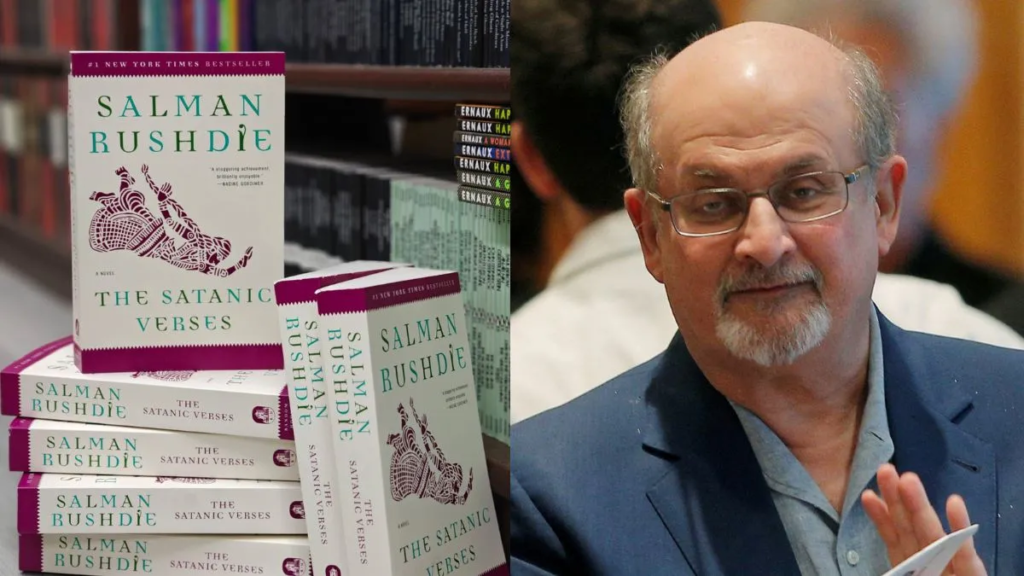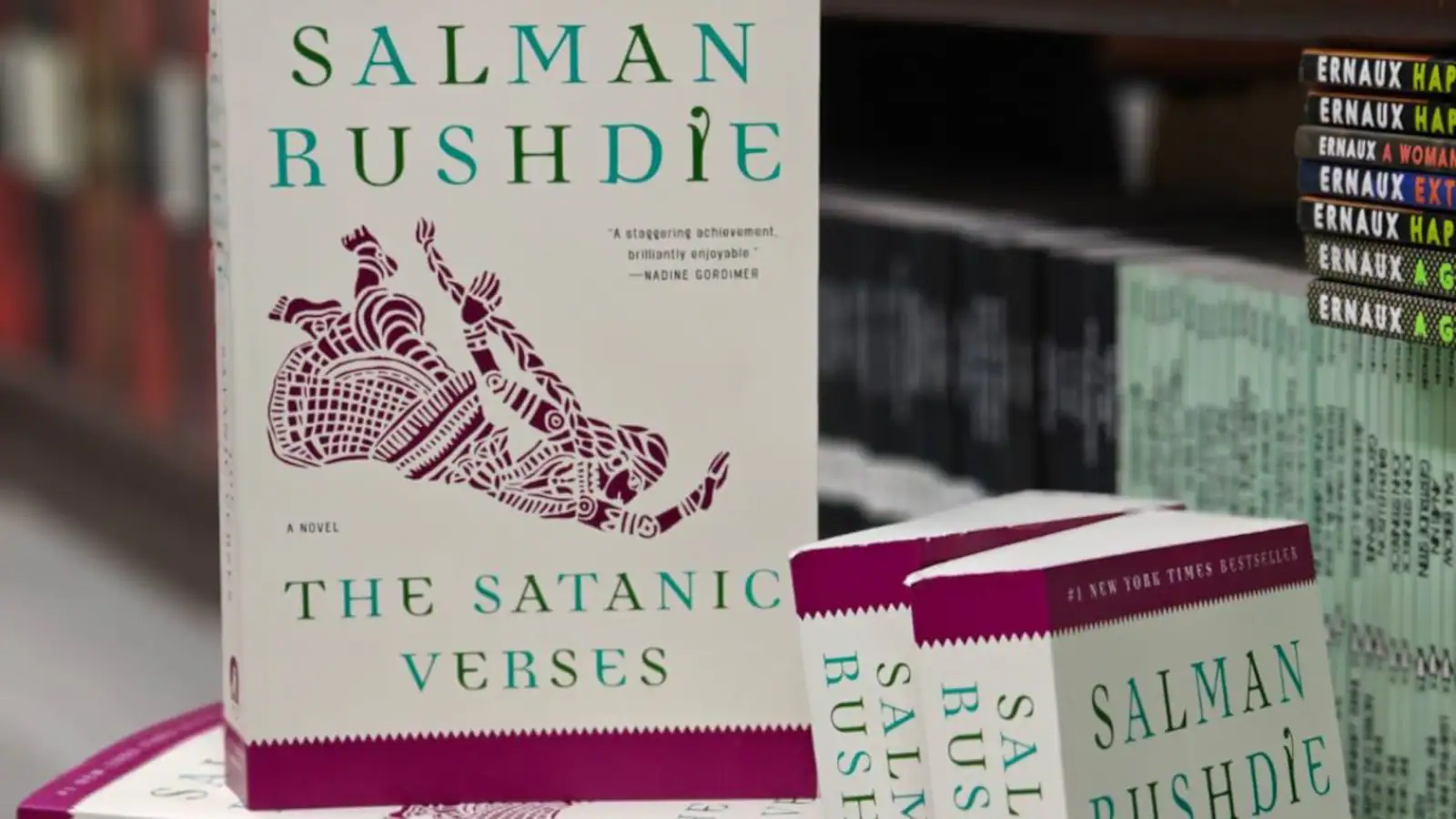Salman Rushdie’s controversial novel The Satanic Verses has returned to Indian bookshelves after 36 years, following a Delhi High Court ruling that lifted the ban imposed in 1988.
The decision marks a turning point in the ongoing debate over freedom of expression, faith, and censorship. The novel, often described as provocative and imaginative, has been at the center of one of the most intense global literary controversies, galvanizing discussions about the boundaries between art and religion.
The Ban and Its Lifting: A Historic Court Decision
India’s initial ban on The Satanic Verses came in 1988, shortly after its publication, as certain communities deemed parts of the book “blasphemous.”
The ban was imposed under pressure from religious groups, making India one of the first countries to take such a step against the novel. The contentious passages were alleged to depict the Prophet Muhammad in a manner offensive to Islamic sentiments, which sparked widespread outrage.
The turning point came in 2019 when a petition challenged the ban, particularly its extension to the book’s import. During the hearing, the Delhi High Court observed that the original notification enforcing the ban was “untraceable” and could not be presented by the government.
Read : UK Author Who Sold 2 Books at Event Becomes Bestseller After X Post Goes Viral
This lack of documentation led the court to conclude that no valid notification existed, effectively lifting the ban on November 5. Prominent lawyer Uddyam Mukherjee, representing petitioner Sandipan Khan, stated, “The ban has been lifted because there is no notification.”
This legal ruling not only reinstates The Satanic Verses to Indian bookshelves but also reignites debates over the fine line between protecting religious sentiments and upholding the principles of free expression.
The Satanic Verses: A Literary Triumph or a Controversial Text?
First published in 1988, The Satanic Verses quickly became a flashpoint for global controversy. Known for its rich and imaginative storytelling, the novel weaves a complex narrative that explores themes of identity, migration, and faith. However, specific passages were deemed offensive by many in the Islamic world, triggering accusations of blasphemy.
The backlash was unprecedented. Iran’s then supreme leader, Ayatollah Ruhollah Khomeini, issued a fatwa calling for Rushdie’s assassination.
@SalmanRushdie 's The Satanic Verses is now in stock at Bahrisons Booksellers!
— Bahrisons Bookseller (@Bahrisons_books) December 23, 2024
This groundbreaking & provocative novel has captivated readers for decades with its imaginative storytelling and bold themes. It has also been at the center of intense global controversy since it's pic.twitter.com/e0mtQjoMCb
This declaration not only placed the author under constant threat but also fueled violent protests and book burnings worldwide. Despite the controversy, the novel remains celebrated in literary circles for its daring exploration of provocative themes and its ability to challenge societal norms.
The book’s return to Indian bookstores has been welcomed by many as a triumph for free expression. Bahrisons Booksellers, a prominent chain, announced its availability on social media, describing the novel as “groundbreaking” and “a literary triumph that challenges and inspires.”
While some hail this as a victory for artistic freedom, others continue to view the text as deeply divisive, underscoring its polarizing nature even decades after its release.
Global Repercussions and Salman Rushdie’s Personal Ordeal
The controversy surrounding The Satanic Verses extended far beyond literary circles, with real-world consequences for Salman Rushdie and his supporters. The fatwa issued by Ayatollah Khomeini not only led to attempts on Rushdie’s life but also placed the author under police protection for years.

The threats against Rushdie reached a tragic peak in August 2022 when he was brutally attacked during a lecture in New York. The assault left him blind in one eye and served as a stark reminder of the enduring risks he faces as a result of his work.
This incident reignited global conversations about the consequences of censorship, the power of literature, and the dangers faced by authors who challenge societal norms.
The lifting of the ban in India comes at a time when freedom of speech and expression are under scrutiny worldwide. It signals a shift towards acknowledging the importance of diverse voices in literature, even when they provoke discomfort or controversy.
Rushdie’s ordeal underscores the sacrifices made by authors to preserve the sanctity of creative expression and the resilience required to stand by their work in the face of adversity.
let’s enjoy few years on earth with peace and happiness….✍🏼🙏

